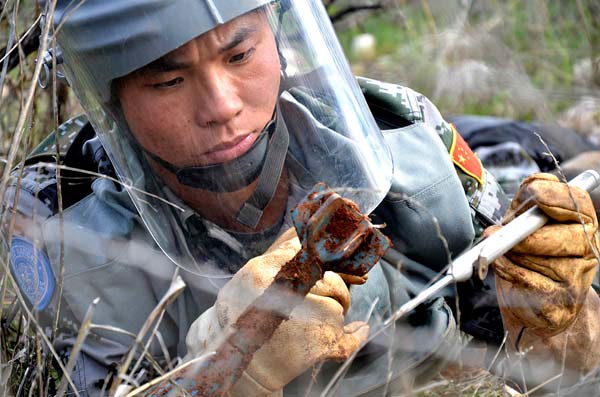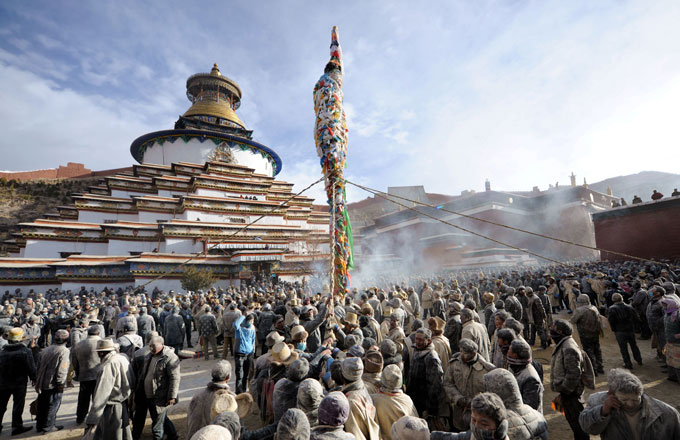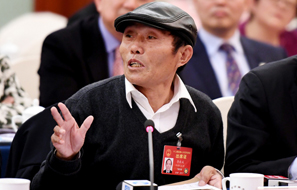Chinese soldiers clear mines, win hearts
|
 |
|
A Chinese peacekeeper tries to defuse a bomb. LI QIANG / FOR CHINA DAILY |
'Dancing on a blade'
"Many soldiers asked me whether I was frightened during the operation. I always said I was afraid, because demining is like dancing on a blade," Chen said.
An adept minesweeper for more than 30 years, he had detected and disposed of 2,150 landmines by the end of last year. His reputation makes him an indispensable member of peacekeeping missions.
At the request of the United Nations and with the approval of the Central Military Commission, the Chinese peacekeeping engineering battalion to Lebanon was formed in March 2006 from an engineering regiment stationed at Yunnan province. It was the first group of peacekeeping soldiers China sent to a Middle Eastern country.
In the 1990s, the regiment swept for mines at the China-Vietnam border and was then sent to Eritrea and Thailand, where it was also tasked with teaching demining techniques. By this time, Chen Dairong was already a minesweeper of repute.
As part of the United Nations Interim Force in Lebanon, the battalion performed other missions besides minesweeping, such as defense works, humanitarian aid and the construction and maintenance of roads.
UNIFIL, which has been stationed in Lebanon since 1977, has a rule that all its soldiers must obtain a demining license. However, some Chinese soldiers did not get the license before arriving in Lebanon, so Chen took it upon himself to organize the team and write a book of standard operating procedures.
His team would often study until 2 am or 3 am after a 10-hour day of demining — their request to learn demining techniques from Ukrainian soldiers was denied on intellectual property grounds.
During the conflict between Lebanon and Israel, soldiers worked half-naked in shelters where the temperature was as high as 50 C. With the help of UN forces and the Lebanese government, Chinese soldiers finished editing their 272-page procedure book in six months, two and a half years before the Ukrainian soldiers.
All 275 soldiers went on to pass the demining test, becoming the first Chinese soldiers to get an international demining license.
"After the project, we left behind hundreds of instant noodle boxes and 20 kg of used paper," Chen said.
Cao Engui, a 28-year-old soldier who had been to Lebanon five times and returned home last month, said the soldiers didn't practice on the front line before going to Lebanon in 2006. "I was nervous when I found my first landmine, because real landmines were not used in minesweeping training," Cao said.
Calling home from Lebanon cost as much as 14.6 yuan ($2.30) per minute, so soldiers turned to an older form of communication — letters. Cao said he learned from his training and developed more confidence after getting the UN license.
"Father and mother, please take it easy. Demining sounds very dangerous but we have advanced facilities and well-organized operation procedures to ensure safety," he wrote in a letter to his parents in Sichuan province.
Huang Aiyu, who commanded the battalion last year, said his unit had helped consolidate the cease-fire line between Lebanon and Israel by erecting nine boundary markers in 2012. The unit also detected 35 landmines, mostly of the anti-tank variety.



















